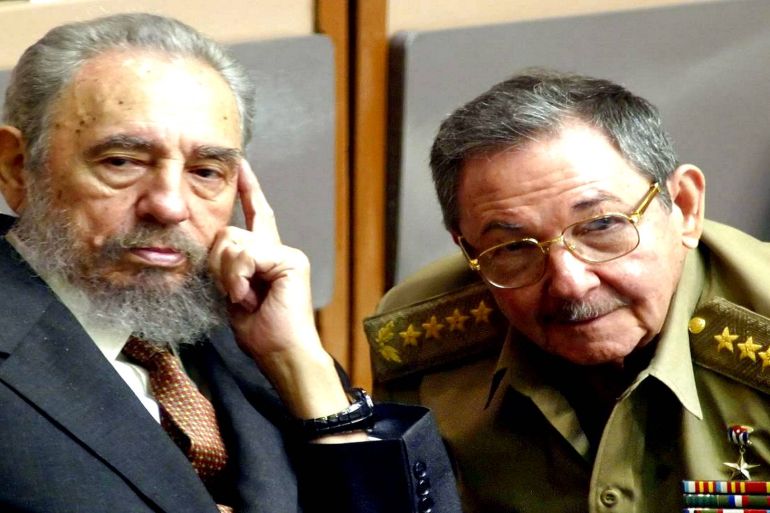Castro era to end in Cuba as Raul set to step down
It will be the first time in nearly six decades that the island country will not be led by a Castro.

Cuba will open a session of its National Assembly on Wednesday that will mark the end of an era in the socialist nation.
President Raul Castro, 86, is expected to step down after two five-year terms during the assembly, marking the completion of Castro rule on the socialist nation.
Keep reading
list of 4 itemsUS to allow more flight routes to Cuba in latest restriction lift
Cuba has a new leader and it’s not a Castro
A new era in Cuba?
First Vice President Miguel Diaz-Canel is expected to assume the position of Cuba’s president as the handpicked successor after a party vote on Thursday.
The Castro family has ruled the socialist nation since a revolution ushered in the rule of Fidel Castro in 1959.
The expected transfer of power comes at a precarious time in Cuba’s history. Cuban allies in Latin America have been voted out of government positions across the region in recent years.
A detente between the US and Cuba, longtime adversaries, has slowed after right-wing Donald Trump became president in 2017.
Cuba is also facing economic difficulties after Castro initiated market-style reforms that were agreed to in 2011. Though the reforms caused a boom in the Cuban economy, they have since slowed.
“Despite the errors and insufficiencies recognised in this plenary, the situation is more favourable than a few years ago,” Castro, 86, was quoted as saying by party newspaper Granma.
Political campaigning is outlawed in Cuba, so little is known about Diaz-Canel’s plans to navigate these challenges.
However, there is reason to believe the presumed president will continue with liberalising social policies, given his past support for LGBT rights, expanded internet access and loosening government controls on media.
Still, Diaz-Canel is not known to support changing Cuba’s government from the one-party system in place since the revolution, a demand from ant-Castro politicians in Washington.
According to Ted Piccone, a senior fellow at the Brookings Institute, the Trump administration will most likely “double down” on its “embrace of punitive regime change” in Cuba after Diaz-Canel assumes power.
Castro will remain the head of the ruling Communist Party until 2021 and is expected to continue to play a big role in policy decisions.